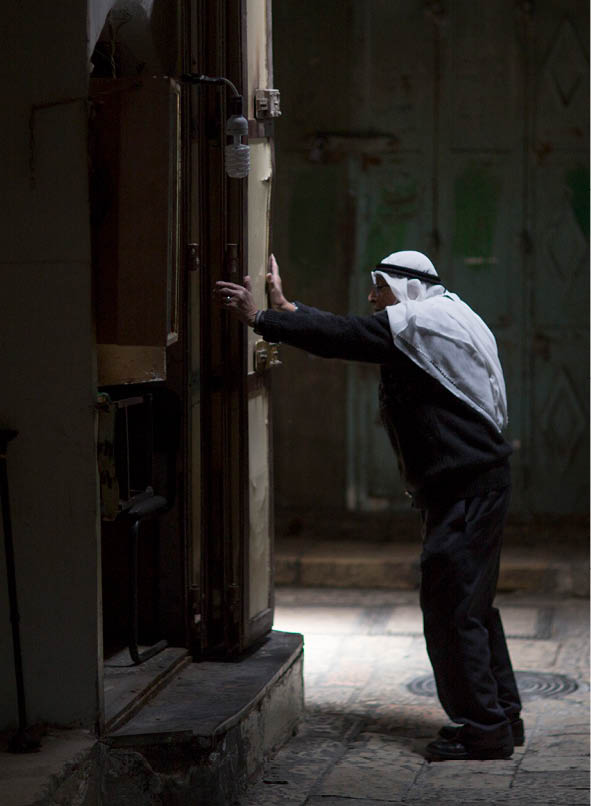Incoming tourism has been wholly paralyzed across the globe due to the spread of COVID-19. Naturally, this applies also to Palestine, where tourism is considered the most important export good. While at this point it is difficult to predict the duration of this crisis or assess its implications, the main stakeholders in the public and private sectors and civil society organizations must closely collaborate and engage in extensive efforts and interventions to aid the recovery process and revive this sector. The effects of the pandemic have crippled the tourism industry, with major losses that will adversely impact economic growth as a whole, and specifically such economic indicators as the GDP, given the loss of jobs, a decline in revenues for companies and individuals along the supply chain, and the loss of government tax revenues. Equally important is the loss of market share and competitive advantage for a specific time frame, which is only alleviated by the fact that the crisis in the Palestinian tourism sector is also felt in many other countries around the world. The challenge, however, lies in the ability to quickly recover and not wait for the eventual loss of our competitive advantage. It is not sufficient to rely on the existence of many attraction points in terms of religious tourism at the international level, such as the Church of the Nativity in Bethlehem, the Church of the Holy Sepulcher and Al-Aqsa Mosque in Jerusalem, Al-Ibrahimi Mosque in Hebron, and many other significant religious sites. The recovery of the Palestinian tourism sector requires a range of measures and procedures within the framework of a comprehensive plan that includes a number of steps.

We must develop comprehensive and attractive promotional material for incoming tourism at the international level and start a wide-ranging marketing campaign as soon as the crisis ends. These materials need to be developed in multiple languages, using a variety of marketing formats, and should include, in addition to visual visitors’ guides and creative marketing content for touristic sites, short films that inform viewers how the damage caused by the crisis has been mitigated. Short documentaries should highlight how these sites have been managed successfully and adapted to fulfill the stipulations of international health standards. Reports on the health situation in Palestine should be issued, pointing out that it is among the countries that were spared an extensive spread of the pandemic due to the precautionary measures undertaken by the government. In addition to being published on the websites of relevant parties and circulated among all our partners around the world, these reports should be disseminated and promoted as well by the Palestinian diplomatic missions. Partnerships should be forged with international media agencies, and ads posted on social media platforms.
Visits to Palestine should be organized, targeting influential travel agents across the world and some media delegations, focusing on traditional non-infected markets and seeking to open new markets.
Government intervention must support the tourism sector by granting tax exemptions and incentives as well as helping to alleviate all other financial aspects and issues involved in the relationship between tourism sector facilities and the various government departments.
Tourism stakeholders should design a package of attractive offers that target domestic tourism by reducing accommodation fees until normal tourism activities resume, which might last up to two years. Free hotel nights could be offered for the reservations of a set number of days, and other incentives and gifts could be given. Stakeholders could organize market days for traditional handicrafts and all other Palestinian products as well as food events throughout the various Palestinian cities. Special attention should be paid to developing a program with attractive offers and incentives to entice Palestinians from around the world to visit.
Travel agents should be provided with support and assistance in marketing Palestine, as they are crucial in bringing tourism back to Palestine and can ensure hotel occupancy through their efforts, relations, and investments over long periods of time. Support should also be given to their foreign partners, as is the practice in some neighboring countries such as Egypt, Jordan, and Israel. Such measures would help Palestinian travel agents compensate their foreign partners for part or all of the losses they have incurred as a result of fluctuations in currency exchange rates and would allow them to confirm and send tourist groups that were supposed to arrive in the country. This is particularly important because most airlines, specifically national companies, have put forward a condition to travel agents to reschedule the booking by the end of this year at the latest or else lose advance payments already made. In addition, airline companies have increased the prices of their tickets due to drops in the number of reservations, among other reasons. Government subsidies that allow for temporary reductions of the prices for tourist packages – including land services, primarily hotel stays, and tourism transport – could support the companies that provide these services and could give an incentive to revive tourism and make up for some of the losses.
All tourism facilities in the various governorates should be provided subsidies for the salaries of their employees. These include hotels, travel agencies, transportation companies, restaurants, travel guides, and souvenirs factories and shops that stopped working due to the crisis.
Tourist transportation companies that are all running debts to Israeli companies and banks should receive subsidies to help them avoid bankruptcy or having to sell their buses at major losses due to the inability to repay their loans and fulfill their obligations to banks and other companies. These transportation companies are central for incoming tourism as well as domestic tourism. The total number of buses is estimated at approximately 600 in Jerusalem alone, providing income to around 4,000 individuals, not to mention transportation companies in other governorates.
It is possible to use the current tourism recession period to fulfill the public health safety requirements for preventing the spread of COVID-19:
• Offer government-guaranteed bank facilitations to allow hotels to refurnish, renovate, and rehabilitate their facilities.
• Offer government guarantees (whether through soft bank loans and/or tax breaks) that enable tourism facilities to take advantage of the current period to carry out rehabilitation works in compliance with public health standards and create open spaces, implement tight measures and detailed plans to monitor quality and safety in preparation for their reopening in compliance with international standards to preserve the safety and health of tourists and visitors.
• Rehabilitate touristic and religious sites to ensure public safety, and put in place social distancing and pandemic-prevention measures and health-safe facilities.
• Develop a marketing strategy that not only banks on the significance of the Palestinian religious and historical sites while showing that they comply with safety and public health standards but also highlights the high quality of the Palestinian tourism offer throughout its facilities and related sectors.
• Develop plans for the spatial development of touristic sites and consider them as development areas that comply with high quality environmental standards. This includes the development of a green tourism sector that markets the Palestinian environmental landscape as well as rural spaces as a touristic destination.
• Cooperate among the Ministry of Tourism and Antiquities, the private sector, and the universities to design training courses in the various tourism-sector and sub-sector specializations to upgrade the capacities of workers and train new workers.
• Cooperate among the Ministry of Tourism and Antiquities, the Ministry of Foreign Affairs, and the private sector to organize workshops for trade attachés or staff of the various Palestinian diplomatic missions, training them in touristic marketing and promotion and providing them with the promotional materials, newsletters, and films to help them carry out this task.
• Strengthen the capacities of tourist guides and train them to use digital applications and improved means to perform their marketing and promotional duties towards Palestine in terms of promoting tourist sites, culture, and social diversity and pluralism.
These are the outlines of actions that need to be taken into consideration in order to design a practical recovery plan that is fair to everyone and that can be implemented according to the available financial resources. This should be carried out in consultation and coordination with all the stakeholders and actors in the tourism sector who have the necessary experience and expertise in this regard. In particular, we must involve travel agents, tourist transportation companies, and tourist guides. Furthermore, we must engage the Ministry of Tourism and Antiquities as well as representatives of the ministries of finance, foreign affairs, national economy, Jerusalem affairs, and labor, and the chambers of commerce. The difficulties faced by the tourism sector in Jerusalem should be taken into consideration fully, considering all aspects of this sector in the Holy City in light of the obstacles created by the occupation that prevent the use of touristic resources in Jerusalem and hamper their development and prosperity.
*Translated from Arabic by Areej Daibas


